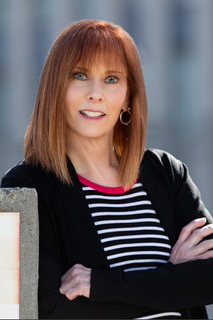It’s practically impossible for any of us to go through life without sometimes stepping on someone else’s toes. That means, of course, that sometimes it’s our own toes that get stomped on. Every time we are offended by another person, we have to decide whether we will forgive that person or whether we will harbor resentment. A simple choice, right? Sometimes yes, but it’s rarely quite as simple as it sounds. There’s a lot of confusion about forgiveness. And, that confusion often gets in the way of our forgiving someone. To understand what forgiveness really means, it helps to first be clear about what forgiveness doesn’t mean.
Forgiving someone does not mean:
- that what was done to you is okay.
- that the person is not accountable for what they did.
- that your pain doesn’t matter or that you should “just get over it.”
So, what does forgiveness mean? Simply put, forgiveness is the decision to no longer hold someone’s offense against them. It’s the choice to cancel the debt it feels like that other person owes you. But, when we’ve been deliberately insulted, violated or betrayed, and the wound is deep and painful, it can be very, very difficult to forgive. In fact, the more hurtful the offense, the harder it can be to forgive. So, how do we do it – and why should we?
That’s exactly what this book is about!
I learned so much in the process of researching and writing this book. One of my biggest personal “aha” moments was learning that there are two kinds of forgiveness – unilateral and transactional.
Unilateral forgiveness is one-sided forgiveness. It takes place entirely within the mind and heart of the offended person. The person who caused the hurt is not even involved. Because unilateral forgiveness requires nothing from the person who caused the offense, it doesn’t matter if that other person has asked for your forgiveness or not. It doesn’t matter if they have no remorse for what they did. It doesn’t matter if they’re not speaking to you. It doesn’t even matter if the person has died. You can still forgive them – because the purpose of unilateral forgiveness is to set yourself free! Forgiveness is for us, for our peace of mind and heart, for our happiness and for our spiritual and emotional freedom from the toxic effects of resentment and unforgiveness. Forgiving others brings about the inner freedom that God desires for us. This is where the title of the book comes from: Forgiveness: The Choice That Sets You Free.
The other kind of forgiveness is called transactional forgiveness. This kind of forgiveness is interpersonal, between two people. It involves a conversation between the person who was hurt and the person who hurt them. Transactional forgiveness can only occur if both people are willing. Usually it means one person is asking for forgiveness, and the other person is giving it. But often, it’s both people forgiving each other. Transactional forgiveness has the potential to restore broken relationships.
This forgiveness that leads to reconciliation is not “forgive and forget.” “Forgive and forget” is actually a myth – because we don’t have the ability to just decide to no longer remember something. Painful memories may dim over time, but it’s not likely that you’ll completely forget a deeply painful wrong that was done to you. Because of this, you may never get to the point where you feel like forgiving. The truth is, real forgiveness, like real love, is a choice. Forgiveness is ultimately a decision of the will, not the emotions.
If you struggle with forgiveness, I invite you to read this book. If you do, I hope it helps you make the choice that sets you free.



















